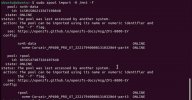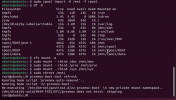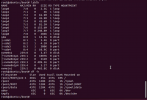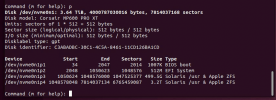The ASUS bm cant find the boot drive so Im trying to repair the boot manager.
Its a fully updated proxmox with ZFS on the boot drive so RTFM-ing regarding proxmox-boot-tool didnt get me somewhere.
I have attached the screenshot of the error I got when I booted of ubuntu and mounted the main pool (I think... .. Its the first time I use ZFS on the boot disk...)




What am I doing wrong?!?!
Thats the correct way to rebuild boot on a ZFS/systemd proxmox?
Thanks
Its a fully updated proxmox with ZFS on the boot drive so RTFM-ing regarding proxmox-boot-tool didnt get me somewhere.
I have attached the screenshot of the error I got when I booted of ubuntu and mounted the main pool (I think... .. Its the first time I use ZFS on the boot disk...)




What am I doing wrong?!?!
Thats the correct way to rebuild boot on a ZFS/systemd proxmox?
Thanks
Last edited:

